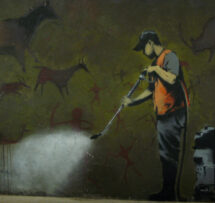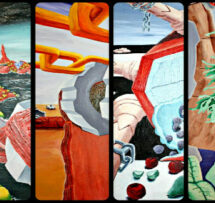The land issue in South Africa: Complexity versus policy

Why is the land issue in South Africa so complicated? Is it possible to institute land policies that reflect this complexity, but are also simple enough to be implementable? What are the underlying principles that should guide us in attempting to solve the puzzle that is the Land Question?
If land issues are inherently multi-faceted and complex, then land policies must be adequate to such complexity; but implementable policies also require clarity and relative simplicity. How can complexity and clarity be reconciled? Politics tends to reduce social complexity to slogans and election promises, and land is particularly susceptible to an emotive politics of identity and belonging. Must complexity be sacrificed within the contested politics of land?
In tonight's edition of Science & Cocktails Johannesburg, Ben Cousins from the Institute for Poverty, Land and Agrarian Studies will focus on the multi-dimensionality of land and property in contemporary South Africa. He will discuss six key aspects in particular: production and livelihood systems, ecology, property, power, institutions and identity. These inter-penetrate and combine with each other in a myriad of ways, creating a seemingly unmanageable degree of complexity – and generating profound challenges for policy makers.
Policies must be clear and unambiguous, and implementable by bureaucrats following set procedures. In relation to all six aspects, there are common conceptual binaries (rural vs urban, commercial vs subsistence, private vs communal, sustainable vs unsustainable, modern vs traditional, etc) that are a poor guide to designing policy. The heightened politics of land, often a symbol for other issues (inequality, a history of brutal oppression, the lack of reparation, the need for housing and services, etc), also tends to
generate a simplistic menu of ‘either/or’ options, such as the need to amend the constitution or not.
But simplifications, whether of policy or politics, often incur heavy costs: project failure, collapsing morale, growing dissatisfaction and the declining legitimacy of the state and other institutions. Thus, as Ben Cousins will argue, there is no alternative to understanding complexity and embodying it in laws, policies, institutions and social practices. These efforts must be guided by clear underlying principles, including the core values of democracy.
Afterwards, smoky crafted cocktails and live South African jazz will set the stage for further discussion of the interplay between policy and politics.
Image: Fence and Fields (Alan Levine/flickr)

Ben Cousins
The land issue in South Africa
Why is the land issue in South Africa so complicated? Is it possible to institute land policies that reflect this complexity, but are also simple enough to be implementable? What are the underlying principles that should guide us in attempting to solve the puzzle that is the Land Question?
Talk by
Ben Cousins
Ben Cousins is Professor within the Institute for Poverty, Land and Agrarian Studies (PLAAS) at the University of the Western Cape. He also holds a DST-NRF Research Chair in Poverty, Land and Agrarian Studies. His research draws on theories, concepts and insights from anthropology, sociology, development studies, political studies, history, economics, law and environmental studies, and aims to support policy-makers and civil society groups concerned with reducing poverty and inequality through redistributing assets, securing rights and democratising decision-making in rural areas.

Music by
Motswedi
From the Southern tip of Africa, the sweet soothing, relaxing voice, sound and music of Motswedi has captured the ears and hearts of the music-loving community. She first began performing at the age of 5, in the church. She performed a song called Babawethu at the age of 9, which made waves in the industry. At age 11 she released her own album named “Babawethu, My family and I”. From then on she has gone to perform in all but 2 continents of the world. Genres ranging from Gospel, Pop, Jazz, Choral, Fusion and even Chinese Traditional music, in China where she lived for 7months. She is currently in her 2nd Year, studying music at the University of the Witswatersrand. At the same time she is working as a Backing Vocalist for the music mogul Dr. Tumi, and she is currently working on her 3rd project that it set to be released early next year. She has recently released a single and music video called
Wena Wedwa that is set to make its way up the charts. Tonight's band is composed of Motswedi (vocals), Brownlee Dlulane (guitar), Joshua Mokoena (piano), Sibonelo Manzini (bass guitar) and Ndumiso Nzama (drums).






































